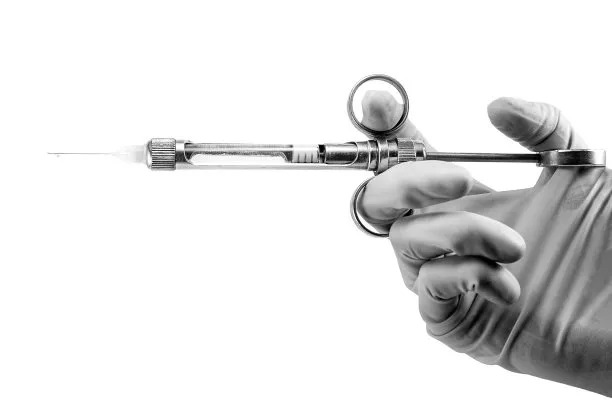Summary: Dental implantation is a definitive solution for missing teeth that significantly enhances oral health and overall well-being. The success of dental implants hinges on several crucial considerations, from patient assessment and surgical techniques to aftercare and maintenance. This article delves into essential precautions and strategic approaches that not only promote optimal recovery but also ensure the longevity and functionality of implants. By understanding the intricacies involved in the implantation process, patients can achieve better outcomes and maintain excellent oral health. The following sections will provide insights into necessary evaluations, surgical procedures, aftercare, and ongoing maintenance, forming a comprehensive guide to successful dental implantation.
1. Comprehensive Patient Assessment Before Surgery

Before undergoing dental implantation, it is vital to conduct a comprehensive assessment of the patient’s overall health and oral condition. This includes a thorough medical history review, as conditions like diabetes or cardiovascular issues may affect healing and implant success. Additionally, a physical examination and various imaging techniques, such as X-rays or 3D scans, are necessary to evaluate bone density and structure. These assessments help clinicians plan the procedure more effectively.
The dentist will also discuss the patients lifestyle and habits, as factors like smoking, poor oral hygiene, and any medications being taken can significantly impact the outcomes. Addressing these factors beforehand ensures that all potential risks are minimized, setting a firm foundation for the implantation.
Lastly, educating patients about the procedure and expected outcomes increases their confidence and compliance, thus contributing to a smoother implantation process. This open dialogue allows any patient concerns to be addressed, fostering a collaborative approach to achieving optimal oral health.
2. Precision in Surgical Technique Matters
The surgical technique employed during dental implantation plays a crucial role in the success of the procedure. A qualified oral surgeon should perform the implant placing with precision, ensuring that the titanium post is inserted correctly into the jawbone. Proper angling and depth of the implant are crucial for stability and longevity. If the surgery is not performed skillfully, it can lead to complications such as implant failure or infection.
In addition to precision, the type of anesthesia used during the procedure has significant implications for patient comfort and procedural efficacy. While local anesthesia is common, some patients may benefit from sedation or general anesthesia, depending on their anxiety levels and complexity of the surgery. The choice of anesthesia should be aligned with the patients needs and the dentist’s recommendations.
Moreover, the use of advanced techniques like guided surgery enhances the accuracy of the procedure, reducing healing time and improving outcomes. Utilizing digital planning and templates assists surgeons in achieving optimal placement, thereby maximizing the chances of successful integration with the bone.
3. Importance of Post-Surgery Care and Monitoring
Post-surgery care is critical in ensuring the successful recovery of dental implants. After the surgery, patients must adhere to specific guidelines, such as avoiding hard foods, maintaining oral hygiene, and taking prescribed medications as directed. This phase often involves a healing period, during which osseointegration occurs—essential for the implants stability and longevity.
Regular follow-up appointments are necessary for monitoring the healing process and checking the position of the implants. These visits allow the dentist to assess the integration of the implant with the bone and identify any early signs of complications, such as infection or implant rejection. Catching these issues early can save the implant and prevent more serious health problems.
Additionally, it is essential for patients to communicate any discomfort or unusual symptoms post-surgery, no matter how minor they may seem. Effective communication between the patient and dentist can help in addressing concerns promptly, ensuring optimal recovery.
4. Maintenance of Implants for Long-Term Success
Long-term success with dental implants is heavily dependent on ongoing maintenance and oral care. Patients must adopt a rigorous oral hygiene regimen, including regular brushing, flossing, and the use of antibacterial mouthwash to prevent plaque buildup. Just like natural teeth, implants require regular cleaning to avoid gum disease and peri-implantitis, which can hinder the longevity of the implant.
Furthermore, scheduling regular dental check-ups is essential for monitoring the health of the gums and surrounding teeth. Dentists can perform professional cleanings and assessments that aid in the early detection of potential issues. Additionally, they can provide advice on lifestyle changes or products to enhance oral health.
Patients should also discuss any dental concerns or needs with professionals, such as orthodontic adjustments or restorative work, to ensure that the implants continue to function as intended. By taking proactive measures, patients can significantly extend the lifespan of their dental implants, maintaining optimal oral health for years to come.
In summary, ensuring successful dental implantation involves comprehensive patient assessment, precision surgical techniques, diligent post-operative care, and ongoing maintenance. These critical aspects form a holistic approach to achieving optimal oral health and recovery, promoting both the functionality and longevity of dental implants. Effective communication between patients and dentists further enhances this process, ensuring that any potential issues are swiftly addressed. By following these essential guidelines, patients can experience the transformative benefits of dental implants.
This article is compiled by Vickong Dental and the content is for reference only
Vickong Dental
Vickong Dental is a large medical group established in Hong Kong in 2008 by professors from well-known medical universities in Guangdong and Hong Kong, as well as medical doctors from key national '985' universities (including Master's supervisors and senior professors). The chain of branches brings together expert dentists with PhDs and Master's degrees from Hong Kong and Mainland China, committed to providing high-quality dental treatment.
"Vickong Dental Practices the University Motto of 'Healing and Serving Society,' with a Stable Operation for Sixteen Years. It Has Been honored with Hong Kong Enterprise Leaders's Choice,' and is a Global Trusted Implant Center for the Nobel Implant System. Recommended by Hong Kong Metro Broadcast and Guangdong Television, it Serves Customers from Over Thirty Countries and Regions, Gaining the Trust and Favor of Citizens from the Guangdong-Hong Kong-Macau Greater Bay Area and Surrounding Cities.

Thousands of customers' unanimous praise
The most recognized and highly recommended dental service by customers in the Guangdong-Hong Kong-Macau Greater Bay Area
We Ensure You Receive Detailed Care and Attention Here
Hong Kong standards, Shenzhen prices, Your Trusted English-speaking dentists

Vickong Dental Medical-Grade Instrument Disinfection Process
Vickong Dental Medical-Grade Instrument Disinfection Process

Vickong Dental Chain: A Warm and Comfortable Environment for Treatment






Appointment Hours

Q&A
Why choose Vickong Dental?
Vickong Dental practices the university motto 「Medicine to Benefit Society」, with each branch bringing together highly qualified dentists with doctoral and master’s degrees from Hong Kong and the Mainland, and has maintained seventeen years of steady operation。Recipient of 「2024 Hong Kong Enterprise Leaders Brand」, 「2025 Hong Kong Enterprise Leaders Brand」, a Nobel Biocare Global Trusted Implant Center, and a brand recommended by Metro Radio Hong Kong and Guangdong TV。
To date, we have served customers from more than thirty countries and regions,earning exceptionally high word-of-mouth recognition and trusted recommendations from residents across the Guangdong-Hong Kong-Macao Greater Bay Area and surrounding cities
We have eight major branches in Zhuhai、Shenzhen,and a consultation and service assurance center in Hong Kong,so you can book a free consultation at any time for any questions,which is very reassuring.
If I do not accept the quotation after the CT scan, will I be charged??
No! As long as the actual treatment has not started, you will not be charged any fees.
Will there be any additional charges during the treatment process?
No, there won’t be any additional charges. Before treatment begins, we will clearly explain the treatment plan and its corresponding fees. Only after the patient agrees and signs the consent form will we proceed with the dental service.
Can I pay in Hong Kong dollars?
Yes. Vickong Dental accepts payment in Hong Kong dollars. The amount will be converted based on the exchange rate of the day, and the applicable rate will be clearly communicated to you in advance.
Can I reschedule my appointment at any time?
Yes. Please contact us via **WeChat** or **WhatsApp** as early as possible, providing your original appointment time and details, along with your preferred new date and time slot for rescheduling.













